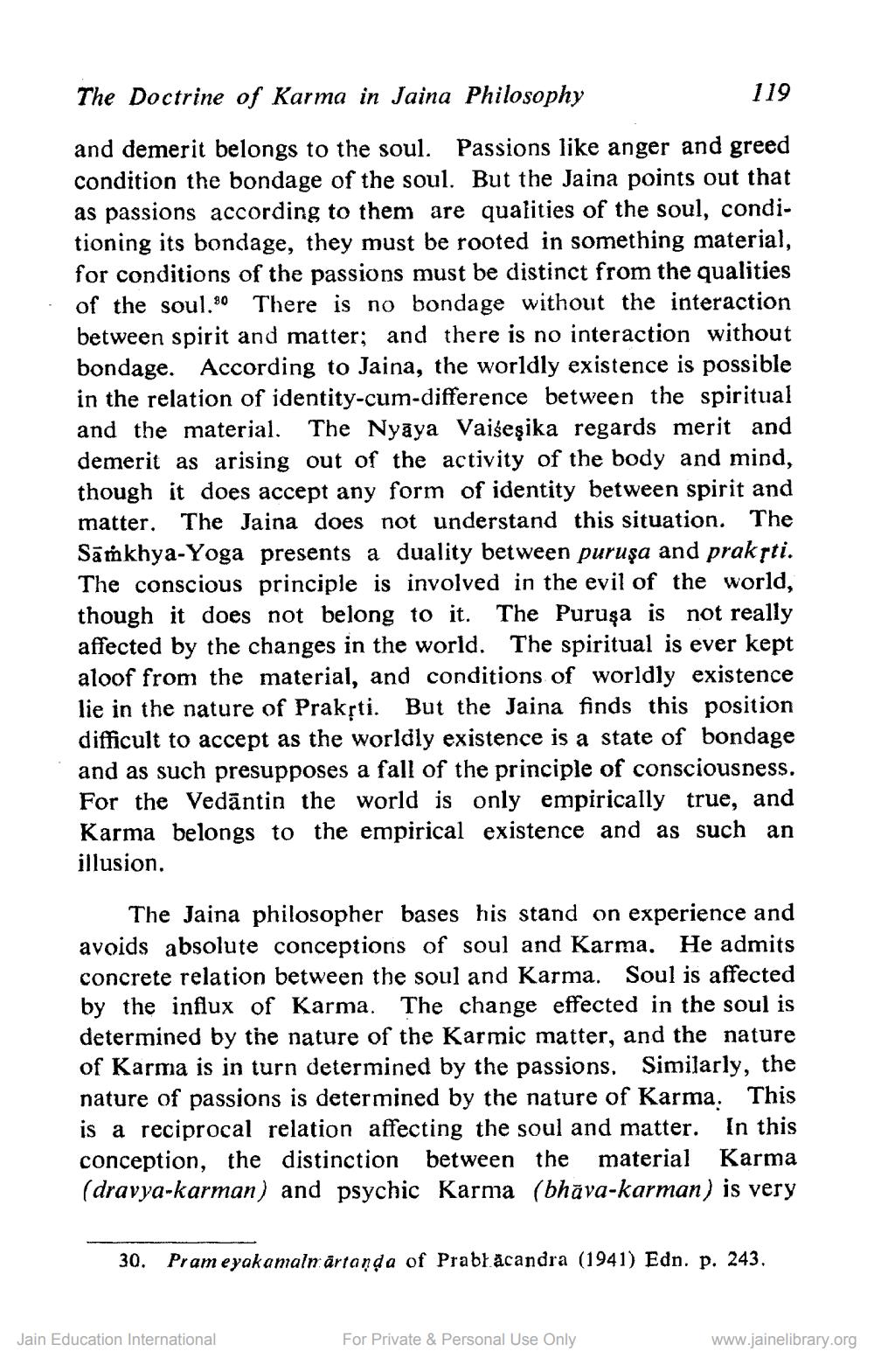________________
The Doctrine of Karma in Jaina Philosophy
119
and demerit belongs to the soul. Passions like anger and greed condition the bondage of the soul. But the Jaina points out that as passions according to them are qualities of the soul, condi. tioning its bondage, they must be rooted in something material, for conditions of the passions must be distinct from the qualities of the soul.30 There is no bondage without the interaction between spirit and matter; and there is no interaction without bondage. According to Jaina, the worldly existence is possible in the relation of identity-cum-difference between the spiritual and the material. The Nyaya Vaišeşika regards merit and demerit as arising out of the activity of the body and mind, though it does accept any form of identity between spirit and matter. The Jaina does not understand this situation. The Sāṁkhya-Yoga presents a duality between puruşa and praksti. The conscious principle is involved in the evil of the world, though it does not belong to it. The Puruşa is not really affected by the changes in the world. The spiritual is ever kept aloof from the material, and conditions of worldly existence lie in the nature of Prakşti. But the Jaina finds this position difficult to accept as the worldly existence is a state of bondage and as such presupposes a fall of the principle of consciousness. For the Vedāntin the world is only empirically true, and Karma belongs to the empirical existence and as such an illusion.
The Jaina philosopher bases his stand on experience and avoids absolute conceptions of soul and Karma. He admits concrete relation between the soul and Karma. Soul is affected by the influx of Karma. The change effected in the soul is determined by the nature of the Karmic matter, and the nature of Karma is in turn determined by the passions. Similarly, the nature of passions is determined by the nature of Karma. This is a reciprocal relation affecting the soul and matter. In this conception, the distinction between the material Karma (dravya-karman) and psychic Karma (bhāva-karman) is very
30. Pram eyak amaln ärtanda of Prabtacandra (1941) Edn. p. 243.
Jain Education International
For Private & Personal Use Only
www.jainelibrary.org




